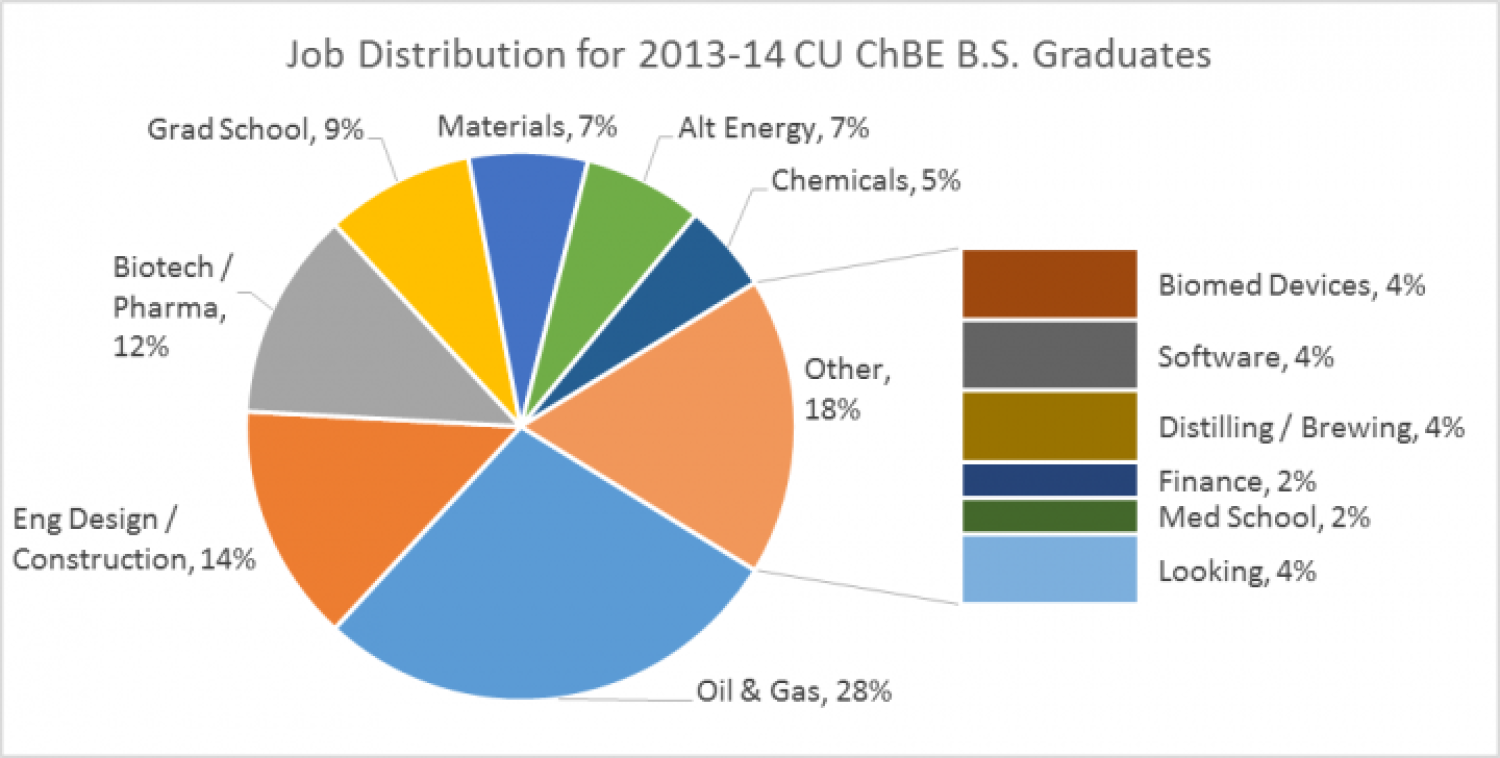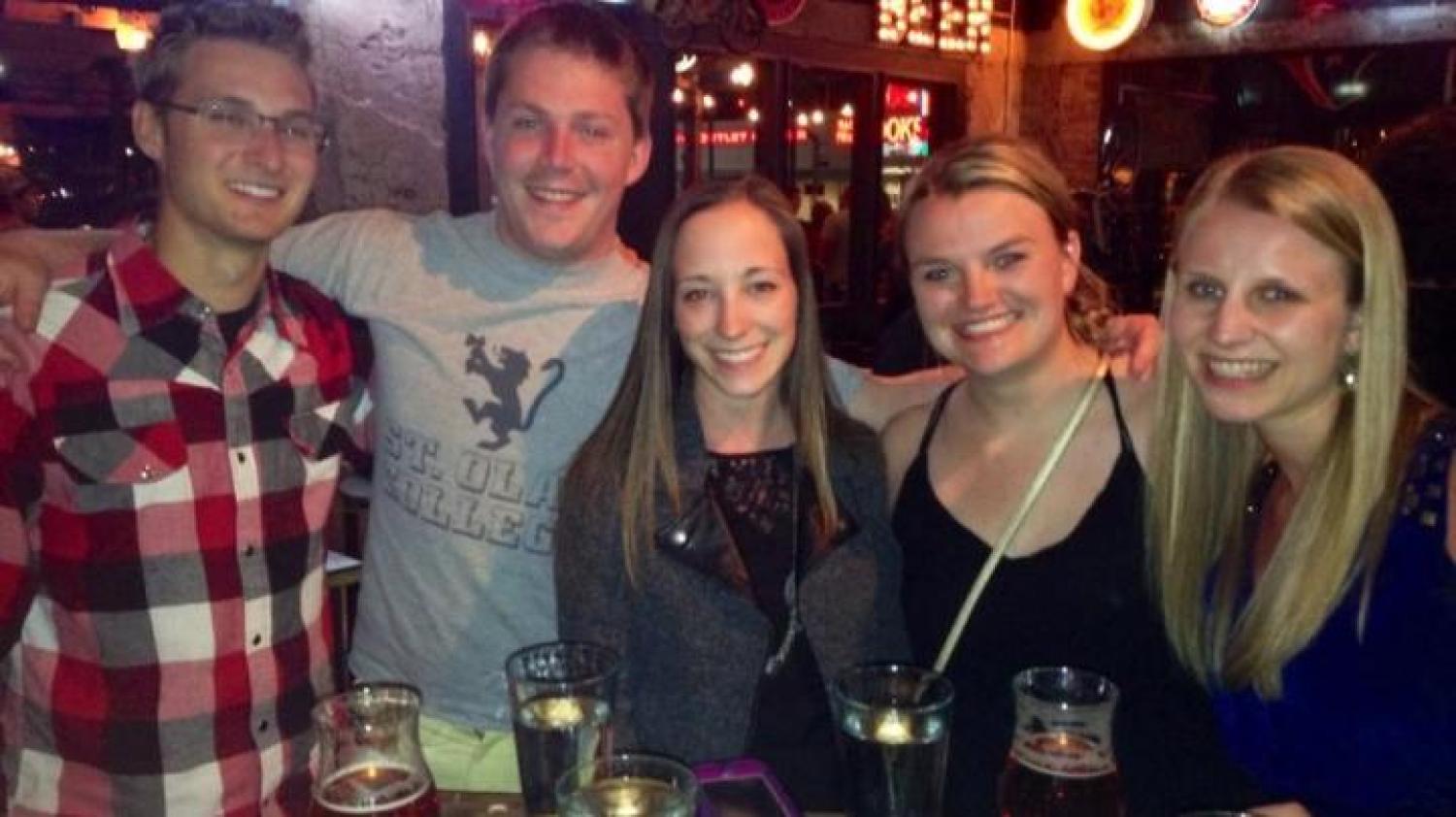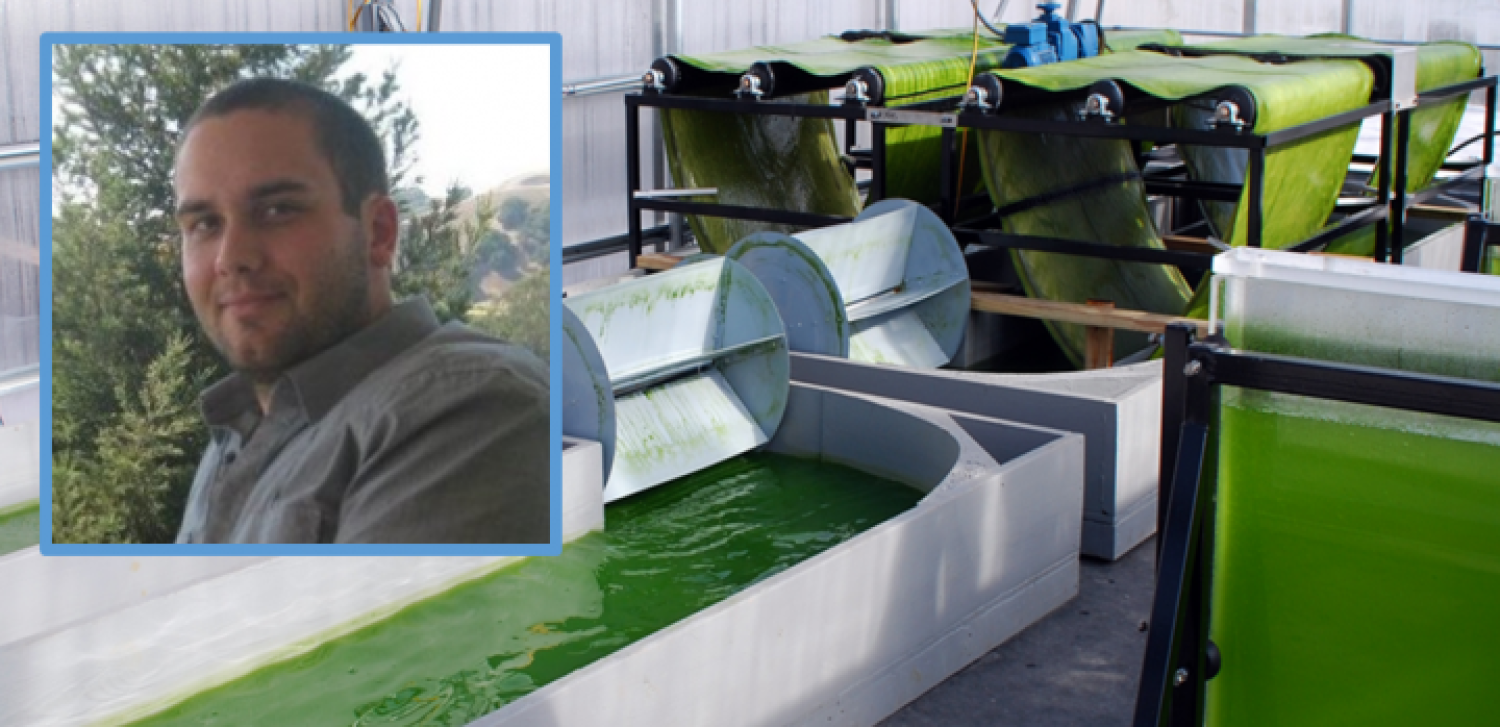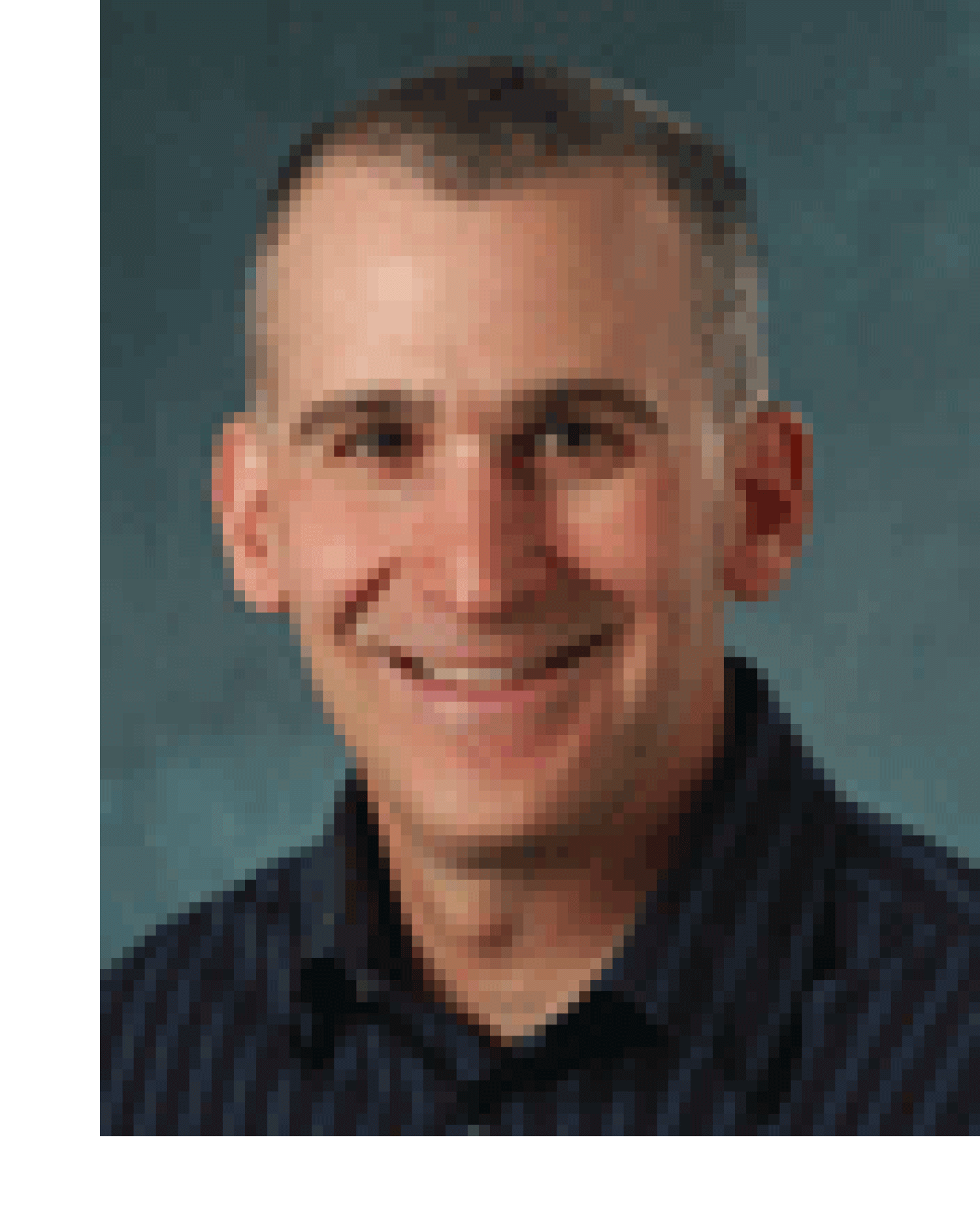ChBE Department Update - Fall 2014

Where is the ChBE Class of 2013-14?
After leaving CU, chemical and chemical & biological engineering students embark on a wide variety of career paths. By contacting students and using LinkedIn, we followed the undergraduate and graduate students who graduated during the 2013-14 CU fiscal year (summer 2013, fall 2013 and spring 2014).
Post-CU job data were collected for 62 percent of the 92 graduating BS students; the current occupations of the remaining 38 percent are unknown. The field distribution is given above. Traditional oil and gas was most popular by a wide majority, followed by engineering design/construction and biotechnology/pharmaceutical. Nine percent of BS graduates headed directly to graduate school, while two percent headed to medical school. In contrast, the percentage of ChBE students headed to graduate school during academic years 2010-2012 ranged between 10 percent to 22 percent according to results from the post-graduate survey conducted by the College of Engineering and Applied Science.
>> More statistics on geographical locations and graduate student jobs.
7 Questions for Dean Robert H. Davis
During his 31 years at CU-Boulder, Dean Robert H. Davis has worn many hats. As a professor in the Chemical Engineering Department specializing in fluid mechanics, he was a staple teacher of the transport phenomenon and analytical methods classes. He served multiple terms as the ChBE department chair and, in 2002, became Dean of the College of Engineering and Applied Science.
Throughout, he has maintained his research program, which has included complex fluids, membrane separations, biotechnology and microfluidics. We asked Dean Davis to reflect on his time at CU and his thoughts on the college’s future.
How has the college changed in the last 30 years? I think the biggest change is that we have transformed from a largely teaching institution with a $2M annual research budget to a first-class research institution now bringing in more than $70M annually in research dollars. Another significant change has been the increase by 30-40 percent in student enrollment in the last five to six years.
If you were to start over as a freshman at CU, what major would you pursue? When I went to college, chemical engineering was the best way of marrying my two favorite fields, math and science. However, I have also always had a huge love of biology and living organisms, so if I could do it over, I would major in Chemical and Biological Engineering.
>>Read about Dean Davis’ vision for the college, his future plans, and more.

The Houston Hub
With no lab reports or homework due, ChBE alumni can concentrate on assessing the fermenting and separation acumen of local brewers during get-togethers in the Houston area. Tyler Gleditsch (Shell), Jay Westcott (ExxonMobil), Erica Duffy (Dow Chemical), Kelly Anderson (ConocoPhillips) and Julie Surfus (Dow Chemical) all graduated in 2013 and periodically meet to catch up, compare work experiences and watch CU football games. Other periodic attendees include Luke Arlow (ExxonMobil) and Karina Sevcik Gabaldon (Audubon Engineering).
"Our CU alliance forged in the bowels of the Borg is stronger than any company rivalry," says Westcott.
Interested in starting or getting involved in a ChBE Alumni Chapter? Please contact wendy.young@colorado.edu

Engineering Algae Growth
Omega-3 oils are linked with reducing the risk of heart attacks, strokes and depression. But can production of these omega-3 oils also decrease CO2 emissions?
The founders of Superior Ecotech think so. The company uses algae to capture CO2 emissions from local breweries and convert it to oils which can be used as vegan omega-3 supplements, cosmetics and biofuels. Because their proprietary process entails growing algae with minimal water content, they enlisted the help of an engineer to design a water control system.
“Superior Ecotech was started by current and former CU graduate students in chemistry and business,” says chemical engineering junior Ben Mousseau. “With my engineering background, I was able to bring a unique perspective and skillset to the project and was given quite a lot of independence in design.”
When Mousseau joined the company in March 2014, he was tasked with creating a system to control algae water exposure. He helped design a novel conveyer belt system where algae is dipped in water periodically. This feature enables Superior Ecotech to produce algae more cost effectively. A patent is now pending on this system.
“If the algae remains too wet, it takes a lot of energy – and money – to dry, making the process economically unfeasible,” says Mousseau. “I helped design a system that allows the water submersion time to be precisely controlled and optimized.”
In addition to his engineering work, Mousseau also gave an interview to the Denver news channel 9News this summer after Superior Ecotech took first place in the CU Denver Jake Jabs Business Plan Competition.
While Mousseau is concentrating on classes this semester, he looks forward to also working with the company when his schedule allows.
“Superior Ecotech recently won the $100K Clean Energy Prize in the CU Cleantech New Venture Challenge and received a $75K Boulder Energy Challenge Grant from the City of Boulder. With the money, we are working with Upslope Brewing Company in Boulder to place a greenhouse on its roof to capture its CO2,” he says. “My experience has been amazing thus far, and the future is only more exciting!”
>> Learn more about Superior Ecotech.
Class Notes
Let us know what you've been up to! Send us a class note or update your contact information using our easy online form.
William (Bill) D. Schafer (ChemEngr '75) has been the vice president for student affairs at Georgia Tech for the past 10 years. In this position, he reports to the president, Bud Peterson, the former chancellor of CU-Boulder. GT has the largest engineering program in the nation and all majors are rated in the Top 10. He is very proud of his degrees from CU-Boulder and now has a rising sophomore at CU-Boulder. He is also serving on the Parents Advisory Council for CU-Boulder. "It is clear my education in engineering at CU-Boulder has elevated my opportunities throughout my career!" he says.
Justin Lee (ChemEngr ’03) and his small-batch distillery J&L Distilling were featured in the most recent college newsletter. Read the article here.
Steve Buckingham (ChemBioEngr '09) recently delivered a presentation at the 2013 ISPE Annual Meeting in Washington, D.C., which focused on a novel analytical technique developed in the Hyde CORE Lab for quantitatively assessing the amount of residual product on equipment surfaces. He was also recently selected to deliver a follow-up presentation at the upcoming 2014 ISPE Annual Meeting in Las Vegas on exploring the robustness of this analytical technique and its capability to scale up to pilot-scale and full-scale process equipment.
Faculty, Staff & Student Awards
The 2014 AIChE Food, Pharmaceutical and Bioengineering Division Award will be presented to Distinguished Professor Kristi Anseth this coming November at the Annual AIChE meeting in Atlanta.
Polymers developed in the labs of Distinguished Professor Chris Bowman are being used by 3M in their new FiltekTM Bulk Fill Posterior Restorative.
Assistant Professor Andrew Goodwin received a $2M NIH New Inventor Award.
Professor Christine Hrenya will receive the 2014 AIChE Particle Technology Forum Lectureship Award in Fluidization at the Annual AIChE Meeting this coming November in Atlanta, Georgia.
Associate Professor Will Medlin was named a Denver Business Challenge Endowed Professor.
Professor Richard Noble was named the 2015 ACS Separations Science and Technology Award winner.
Professor Dan Schwartz was named an ACS Fellow and received the Dean’s Award for Research.
ChBE junior Daniel Emmerling was awarded a Professional Research Experience Program (PREP) Fellowship by the NIST Applied Chemicals & Materials Division.
Letter from Chair Dan Schwartz

Remarkably, this growth in enrollment comes at a time where we are also being increasingly recognized for thequalityof our programs. In particular, last month we received the great news that we were included (for the first time) in theUS Newslist of top undergraduate Chemical Engineering programs, based on a survey of Engineering Deans and senior faculty. This is a rare honor; in fact, only 22 departments in the country were included on this list, and we were ranked 18thin our first appearance. Coming on the heels of the high ranking (14th) of our graduate program last spring, this is yet another sign that CU-ChBE is becoming a highly-visible department at the national level, thanks to the dedication and talents of our students, faculty, staff, and alumni.
Dan Schwartz
Department Chair
Upcoming Events
Fri, Oct 24 Back to Boulder Homecoming Luncheon
11:30 a.m. in the Rec Center’s Large Ice Overlook Room
Thurs, Oct 30 Panel Discussion: The Future Role of Chemical Engineers in Energy
6 p.m. – 7 p.m. in JSCBB A115; refreshments afterwards; ChBE Mentor Program participants, alumni and professional colleagues welcome.
Mon, Nov 17 ChBE AIChE Reception
7 p.m. – 9 p.m. in Room 212-213 of the Hilton Atlanta Hotel, Atlanta, GA
Quick Bits
CU is hosting the 2015 Rocky Mountain Student Regional Conference, complete with Chem-E-Car Competition, Mini-Career Fair, Student Paper Competition, Industry-Led Workshops and more. Contact wendy.young@colorado.edu if you are interested in participating in or sponsoring the event.
Thirty-two more student-alumni pairs were matched through the ChBE Alumni Student Mentor Program (ASMP), bringing the total of ASMP pairs to 97. Attend our ASMP event on Thursday, Oct 30 and contact wendy.young@colorado.edu if you would like to become a mentor.
US News & World Report ranked the ChBE undergraduate program 18th in the country overall and 12th among public institutions; we were the only undergraduate chemical engineering program in the Mountain Time Zone to make the list.
Since its inception, June 2014, the 1904 Society has been experiencing a surge in alumni members who are invested in the future success of their department. Please consider sharing your career and life successes by becoming involved with the department and an investing member of the 1904 Society! Contact Amanda Brodie at amanda.brodie@colorado.edu if you have any questions or simply want to sign up today.
In the News
Andrew Goodwin Receives $2M NIH Grant to Develop Cost-Effective Way to Detect Cancer, Heart Disease
3M to Use Polymer Co-Developed in Bowman Group in New FiltekTM Dental Restorative Material
Nagpal Group is Turning Oxide Semiconductors into Metal-Like Conductors
Alumni Profile: Award-Winning J&L Distillery Intersects Science and Art
Al Weimer Receives $2M from DOE to Develop Water-Splitting Reactor
Ted Randolph and Dan Schwartz Receive Vaccine Stabilization Patent

